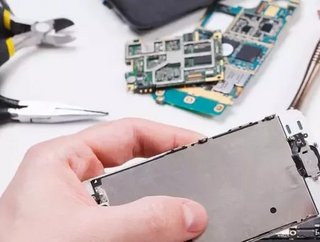EU gives consumers the ‘right to repair’ their smartphones

The European Parliament passed a new resolution on Thursday in favour of a more sustainable Single Market. At the heart of the resolution is a motion to grant consumers the “right to repair” their own mobile devices.
Device manufacturers wishing to sell in the European market would be required to “grant consumers a ‘right to repair’ by making repairs more appealing, systematic, and cost-efficient, whether by extending guarantees, providing guarantees for replaced parts, or better access to information on repair and maintenance,” said a press statement from the European Parliament’s press office.
The effects of these measures passing into law could be monumental. Smartphone makers could be forced to dramatically extend the warranties they offer, or even transition to using more long-lasting products in the manufacturing and design process.
By making phones, tablets and computers easier to repair - likely by use of more modular construction techniques and more easily accessible interiors - third party maintenance and repair firms could also benefit, granting further life to the second hand device market. According to a survey by Waveform conducted in the US, more than 70% of respondents were in favour of a right to repair.
In addition to the right to repair, the proposal is introducing a slew of measures aimed at cracking down on manufacturers that build planned obsolescence into their devices.
“Despite our technological progress, one cannot fail to notice that many manufactured goods do not last as long as one would expect them, never mind as long as they used to,” wrote David Cormand, MEP and member of the EP Committee on the Internal Market and Consumer Protection, in a recent article. The figure mirrors an older report conducted in the EU, which found that 77% of EU citizens would rather repair their devices than replace them.
“Washing machines from the 1960s often lasted for 30 years or more, while current models last maybe five.” He added that the current rules and regulatory framework do not reward companies that build products to last, as forcing consumers to buy a new product every few years is far more lucrative, and there are no legal and regulatory drawbacks to doing this.
In addition to deterring companies from intentionally shortening the lifespans of their products, the proposal aims to introduce new rules for waste management and the removal of legal obstacles that prevent repair, resale and reuse, as well as promotion of the second-hand electronics market.
The resolution also took aim at the practice of “greenwashing”, a method by which manufacturers and brands imply that their devices are sustainable or eco-friendly without providing any substantiated proof. Cormand writes that, “We need to dispel the myth that individual consumers or companies should bear the burden of the green transition. It is our role, as regulators, to ensure that the market rules are fair and sustainable by design.”
MEPs have essentially demanded that the procurement supply chain for smartphone manufacturers become more sustainable and transparent. A press statement from the European Parliament notes that “when environmentally friendly claims are made in advertisements, common criteria should be applied to support such a claim – similar to obtaining ecolabel certifications.”
The Parliament voted overwhelmingly in support of the proposal, with 395 votes in favour and 94 opposed. The next step will be for the European Commission to develop and introduce a mandatory labeling system that will inform consumers as to the level of repairability of electronics and other products.
“The time has come to use the Green Deal objectives as the foundation of a single market that promotes durable products and services by design. To achieve this, we need a comprehensive set of rules that facilitates clear and simple decisions in place of technical amendments that lack political courage and which confuse both consumers and businesses. By adopting this report, the European Parliament sent a clear message: harmonised mandatory labelling indicating durability and tackling premature obsolescence at EU level are the way forward,” commented Cormand on Thursday.






